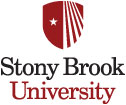Newswise — STONY BROOK, NY, August 7, 2018 – Stony Brook University, iCell Gene Therapeutics, and the University of Louisville, have received Food and Drug Administration (FDA) clearance for an Investigational New Drug (IND) for the treatment of relapsed and refractory T-cell leukemia and lymphoma. The approach is the first to use chimeric antigen receptor engineered T-cells directed against the target protein CD4 (CD4CAR). Together, Stony Brook University, the University of Louisville, and iCell Gene Therapeutics expect the first in-human Phase I clinical trial to begin accruing patients before the end of 2018.
“We are excited to partner with the University of Louisville and iCell Gene Therapeutics to offer this innovative first-in-human CAR T cell immunotherapy clinical trial for patients who are suffering from these extremely difficult to treat T cell lymphomas and leukemias,” said Huda Salman, MD, Principal Investigator for the IND and an oncologist at Stony Brook University Cancer Center. “CD4CAR T cells may prove to be a promising and novel therapy in this setting.”
“The development of this trial using CD4 as a target is the first of what we expect to be many CAR T-based clinical trials available to our patients over time,” said Yusuf Hannun, MD, Director of the Stony Brook University Cancer Center. “The pending trial is an example of the type of bench-to-bedside research that is building up at Stony Brook due to the growing expertise and collaborative research environment we are creating and new opportunities that will emerge upon the opening of our Medical and Research Translation (MART) Building.”
William Tse, MD, FACP, Chief of the Blood and Marrow Transplantation at the University of Louisville School of Medicine, is the Co-PI of the CD4CAR clinical trial at University of Louisville site.
About CD4CAR
CD4CAR is a novel development for the treatment of CD4+ T-cell malignancies. The CD4-redirected chimeric antigen receptor (CAR) T-cells are engineered to express an anti-CD4scFV antibody domain. CD4CAR has received Orphan Drug Designation by the FDA for Peripheral T cell Leukemia (PTCL) in 2016. Over the past few years, CAR T-cell therapy has proven its efficacy in clinical trials for various types of leukemia, lymphoma, and myeloma. CAR T-cell therapy is a type of adoptive immunotherapy. A CAR-engineered T-cell is genetically modified to express a protein on its surface with the capability to bind to a target protein on another cell. The CD4CAR is manufactured from the patient’s own cells to target CD4 expressed on tumor cells. Once these cells are infused back into a patient’s body through an IV, they multiply and attack tumor cells efficiently throughout the body.
About T-cell leukemias and lymphomas
Although there are clinical development programs ongoing with CAR T-cells for B-cell hematological malignancies, CD4 positive T-cell malignancies (T-cell lymphomas (TCLs) and T–cell acute lymphoblastic leukemia (T-ALLs)), have not been targeted by a CAR therapy in a human trial. TCLs account for 15–20 % of all non-Hodgkin’s lymphomas (NHLs), while T-ALLs affect about 25% of ALLs in adults. These malignant entities are significantly more difficult to treat in comparison to B-cell malignancies. Furthermore, T-cell malignancies almost exclusively have poorer outcomes with few exceptions, lower response rates, shorter times of disease control and survival. As a result, the standard of care for T-cell malignancies is not well-established and the only potential curative approach is allogeneic blood and marrow transplant (BMT) for which patients need to achieve complete disease control and to have suitable marrow donors. This leaves many patients with no curative options.
About Stony Brook University
Stony Brook University is going beyond the expectations of what today’s public universities can accomplish. Since its founding in 1957, this young university has grown to become a flagship as one of only four University Center campuses in the State University of New York (SUNY) system with more than 26,000 students and 2,600 faculty members, and 18 NCAA Division I athletic programs. Our faculty have earned numerous prestigious awards, including the Nobel Prize, Pulitzer Prize, Indianapolis Prize for animal conservation, Abel Prize and the inaugural Breakthrough Prize in Mathematics. The University offers students an elite education with an outstanding return on investment: U.S. News & World Report ranks Stony Brook among the top 50 public universities in the nation. Its membership in the Association of American Universities (AAU) places Stony Brook among the top 62 research institutions in North America. As part of the management team of Brookhaven National Laboratory, the University joins a prestigious group of universities that have a role in running federal R&D labs. Stony Brook University is a driving force in the region’s economy, generating nearly 60,000 jobs and an annual economic impact of more than $4.6 billion. Our state, country and world demand ambitious ideas, imaginative solutions and exceptional leadership to forge a better future for all. The students, alumni, researchers and faculty of Stony Brook University are prepared to meet this challenge.
